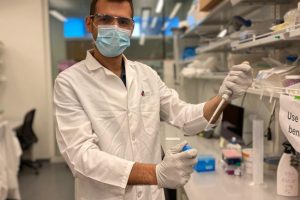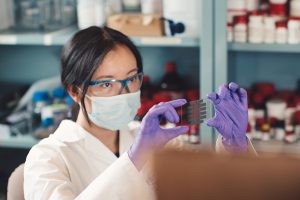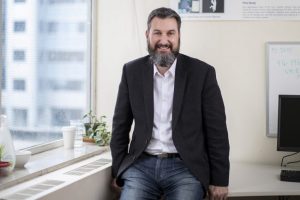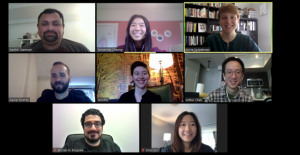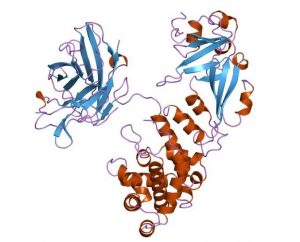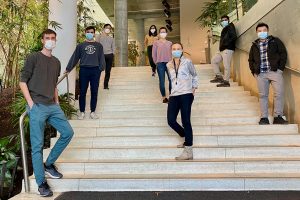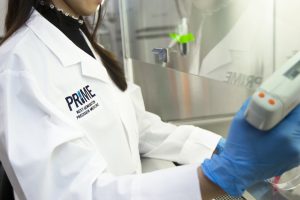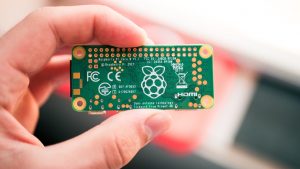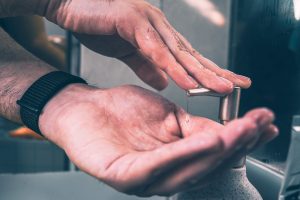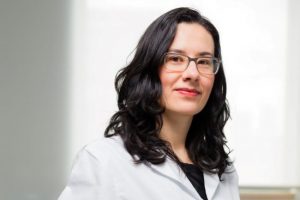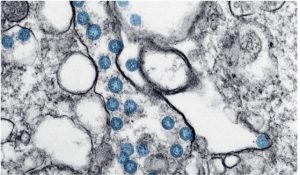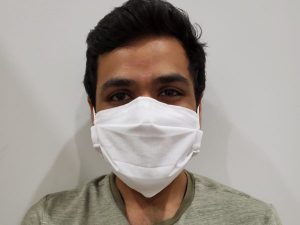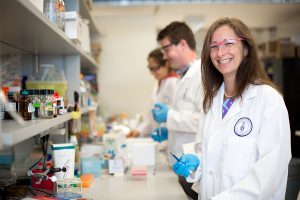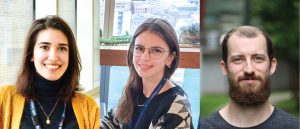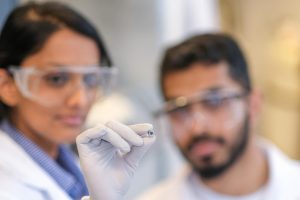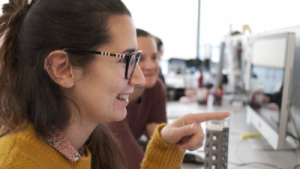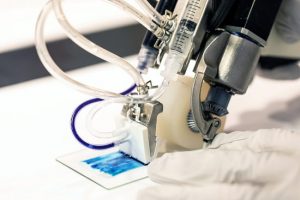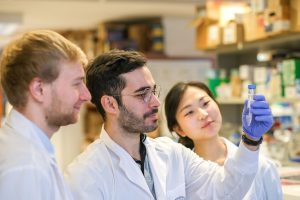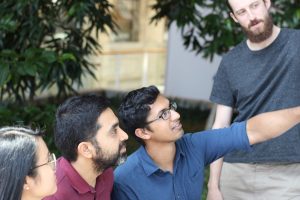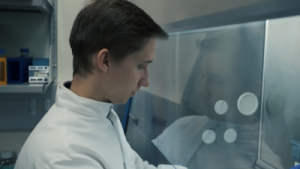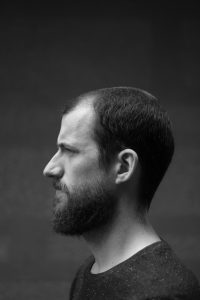Research News and Stories
Explore the latest news, stories, and groundbreaking research happening at the Institute of Biomedical Engineering. Stay updated on innovative projects, impactful discoveries, and the achievements of our talented students, faculty, and alumni shaping the future of biomedical science and engineering.
Quick Navigation
U of T Engineering researchers develop cell injection technique that could help reverse vision loss
U of T Engineering researchers have developed a new method of injecting healthy cells into damaged eyes. The technique could point the way toward new treatments with the potential to reverse forms of vision loss that are currently incurable.
How to get more cancer-fighting nanoparticles to where they are needed
U of T Engineering researchers have discovered a dose threshold that greatly increases the delivery of cancer-fighting drugs into a tumour.
Credit-card sized tool provides new insights into how cancer cells invade host tissues
A group of researchers from the University of Toronto have developed a new tool to study breast cancer metastasis. By using a device that’s the size of a credit card, researchers can produce various biological environments to mimic the progression of cancer cell invasion.
Robotics for elder care: New joint centre fosters global collaboration
The new joint centre on robotics for elder care is led by professors Alex Mihailidis (IBBME, Medicine) and Yan Fu at the Huazhong University of Science and Technology.
U of T Engineering set to host first-ever virtual research conference
Brandon Rufino (IBBME MHSC candidate) will be presenting in the human health category as a lightning lecture speaker. Under the supervision of Professor Elaine Biddiss (IBBME), he and his fellow grad students develop and evaluate technologies to allow young people with disabilities to participate more meaningfully in arts, music, physical activities and therapies.
New ‘rock candy’ approach could lead to simpler, faster tests for COVID-19
Testing for viruses is not a new science, but the COVID-19 pandemic has exposed the bottlenecks in established methods. Now, a team led by Professor Leo Chou (IBBME) is pursuing a non-traditional approach that, if successful, could lead to simpler, faster tests.
U of T researchers develop ‘piggyback’ vehicle to escape the endosomal trap and deliver RNA therapeutics
U of T researchers develop ‘piggyback’ vehicle to escape the endosomal trap and deliver RNA therapeutics
Meet Donnelly Centre Team Developing on-the-go Test for COVID-19
While most people are sheltering at home, for a team led by Professor Warren Chan it’s business as usual as they continue to develop an automated, more sensitive and rapid test for COVID-19 to help curb the pandemic.
U of T precision medicine initiative launches task force to fight COVID-19
The PRiME Task Force on Advanced Diagnostics and Therapeutics for COVID-19 brings together U of T researchers with expertise in a variety of fields to develop new diagnostic tools and therapeutics
COVID-19: ECE team programs single-board computers to remotely monitor patients and protect health care workers
A U of T Engineering team, led by Professor Willy Wong (ECE/IBBME) has created a simple, scalable solution to remotely monitor the vital signs of COVID-19 patients. This technology could help preserve vital personal protective equipment (PPE) for health-care workers.
U of T startup develops technology that encourages hand hygiene to prevent the spread of COVID19
Dr. Geoff Fernie is developing a wearable technology that reminds first-line responders to wash their hands despite their busy schedules. This technology could significantly reduce the spread of Hospital-Acquired Infections (HAIs) including COVID19.
How does COVID-19 invade our bodies so easily? U of T Engineering team uses ‘organ-on-a-chip’ model to find out
Milica Radisic (ChemE, IBBME) is working with Axel Guenther and Edmond Young (both MIE) to create tiny models of the nose, mouth, eyes and lungs to better understand how COVID-19 infects organs
Review paper summarizes diagnostic tools and surveillance for COVID19
Prof. Warren Chan, Dr. Samira Mubareka, Dr. Jonathan Gubbay and their trainees have summarized current diagnostic tools for detecting and surveilling COVID-19 in the journal ACS Nano. This article aims to guide researchers in developing COVID19 diagnostics by discussing current and emerging diagnostic tools.
As COVID-19 protective supplies dwindle, U of T Engineering grad students are stitching face masks for Toronto
U of T Engineering graduate students Kramay Patel (IBBME MD/PhD candidate) and Chaim Katz (IBBME PhD candidate) are temporarily trading in their electrodes and amplifiers for sewing machines and cotton threads.
Smart finger pads for robots among six U of T Engineering projects awarded with Connaught Innovation funding
Smart finger pads for robots among six U of T Engineering projects awarded with Connaught Innovation funding
2020 Dorrington Awards Recognize Graduate Research in Rare Diseases, Computer Vision and 3D Cancer Modelling
2020 Dorrington Awards Recognize Graduate Research in Rare Diseases, Computer Vision and 3D Cancer Modelling
IBBME researchers develop pill-sized heating device for diagnostic testing
IBBME researchers develop pill-sized heating device for diagnostic testing
Rodrigo-Fernandez Gonzalez Lab
Dr. Rodrigo Fernandez-Gonzalez is interested in understanding how cells coordinate with one another during wound repair and embryogenesis.
Handheld 3D skin printer demonstrates accelerated healing of large, severe burns
A new handheld 3D printer can deposit sheets of skin to cover large burn wounds – and its “bio ink” can accelerate the healing process.
Researchers develop method to improve artificial islet transplantation success rate
Researchers from IBBME developed a method to improve the transplantation success rate of artificial islets.
Most Engineered Nanoparticles Enter Tumours Through Cells, Not Between them, U of T Researchers Find
University of Toronto researchers have discovered that an active rather than passive process dictates which nanoparticles enter solid tumours, upending decades of thinking in the field of cancer nanomedicine and pointing toward more effective nanotherapies.
Margaret Cheng Lab
Dr. Hai-Ling Margaret Cheng is developing cell and tissue scaffold tracking contrast agents to visualize how they are moving in the body.
